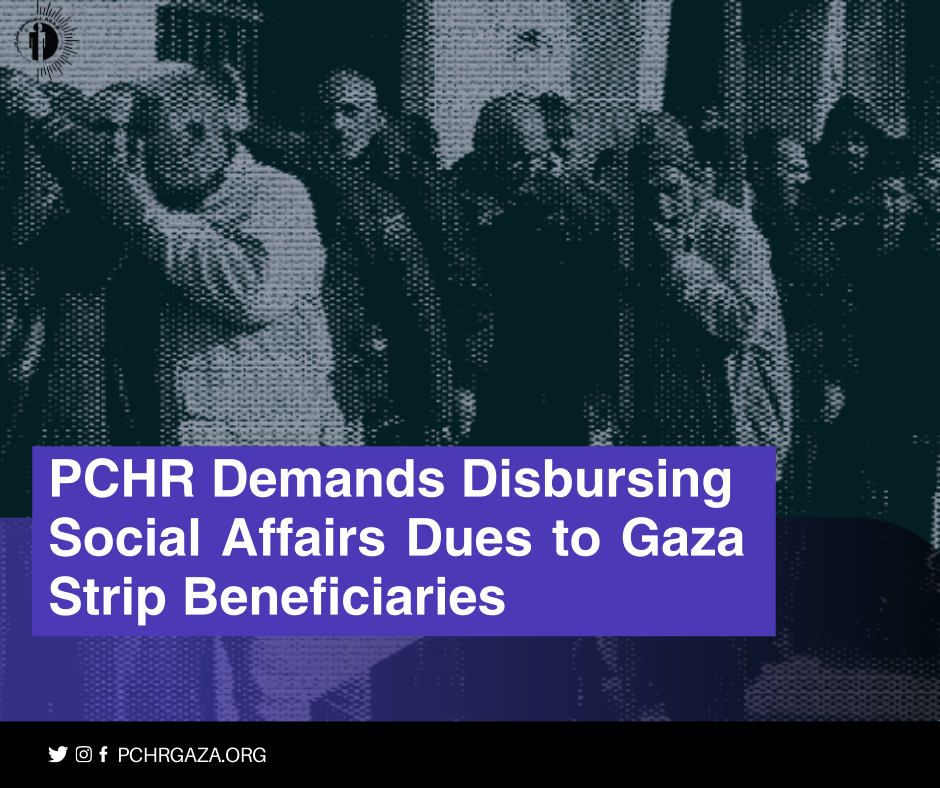
Ref: 131/2020
Date: 17 December 2020
Time: 18:00 GMT
The Palestinian Centre for Human Rights (PCHR) follows up with deep concern the late disbursement of social affairs dues to its beneficiaries (about 80,000 families), constituting the poorest people in the Gaza Strip who became unable to meet their basic needs. PCHR calls upon the Palestinian authority (PA) to assume its responsibilities towards poor people and protect them by urgently disbursing social affairs dues to its beneficiaries and increasing the number of beneficiaries, especially in the light of the exceptional and emergency circumstances.
According to information available to PCHR, the Palestinian Ministry of Social Development (MoSD) has allocated part of its financial aid within the “checks” cash transfer program to the poorest people and persons with disabilities in the Gaza Strip. It has also allocated emergency aid to help those affected by the Covid-19 pandemic. This aid did not cover all those in need, especially with the deterioration of living conditions in the Gaza Strip and the irregular disbursement of these dues on fixed dates every three months (4 payments per year) decided by the MoSD; aid was only paid twice during 2020.
PCHR received dozens of appeals and complaints from citizens enrolled in the “Social Affairs Program,” demanding the PA to intervene quickly to ensure the regular disbursement of their dues. Also, those citizens expressed their fear that the aid to some families would be withheld according to the criteria followed by the MoSD.
The Covid-19 pandemic has had a negative impact on the Gaza Strip population, especially poor people, workers, low-income households and persons with disabilities. Due to restrictions imposed to curb the outbreak of Covid-19, including nighttime curfew and weekend shutdowns, the work of productive, industrial and craft sectors in the Gaza Strip has suspended and their economic activity has declined. As a result, many workers lost their sources of income, which aggravated their living and economic conditions because they became unable to provide their families’ basic needs.
All of the above was a main contributing factor to the increased unemployment rate in the Gaza Strip to 45% (i.e. 217,100 unemployed workers) and resulted in a 53% poverty rate among its population. Meanwhile, more than 62.2% of the Gaza population suffer from food insecurity according to the UN Office for Coordination of Humanitarian Affairs (OCHA).
In light of its fear of deteriorating living conditions for the families enrolled in the “Social Affairs Program”, PCHR: